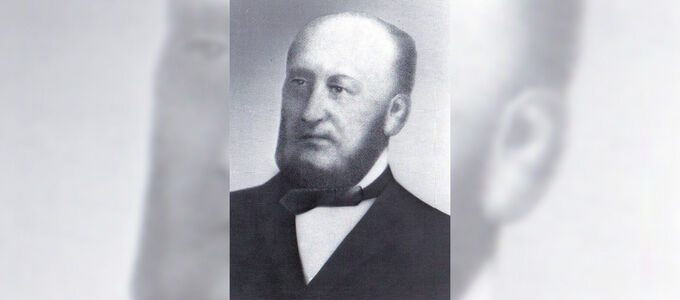First yes, then no: all beginnings are difficult

Already the name itself is a little unusual, but even more so the man’s actions: Rudolf Rosochacky was invested with the ministry of an Apostle 160 years ago today. Interestingly, he only took up his tasks publicly three months later, only to resign it again after a week. From the beginnings of the apostolic movement.
Anyone who wants to understand the genesis of the New Apostolic Church needs staying power. Many actions are difficult to understand for modern people today; in many cases there is a great deal of confusion. The liturgy and hierarchy of the Church, so familiar and routine today, were not known. Movements of the revival time completely worked their developments out with the Holy Spirit. This was the case with the Catholic Apostolic Church, which was already well-established then. Twelve Apostles had been called in the 1830s and governed the Church in accordance with early Christian model. They were assisted by a multitude of other church servants, some with complex sounding ministerial designations.
Gradually, however, a clear picture emerged, or, as the well-known confessional scholar, Helmust Obst put it in his book Apostel und Propheten der Neuzeit (Apostles and prophets of the modern era). Prophetic callings and prophecies still occurred—they were elementary for the young movement and constituted a proof of attachment to early Christianity—but they were increasingly authorised by the Apostles, that is, they were either acknowledged or rejected.
Twelve or more?
1862 is an important date in the history of the Catholic Apostolic Church. 1862 is an important date in the history of the Catholic Apostolic Church. The English Apostles had resigned themselves to the fact that there would be no other Apostles besides the twelve already called. Apostolic activity without them was unthinkable for them. Previous discussions on this subject had always been rejected so far. With their death the Apostle ministry would end and the Church would be perpetuated by archbishops (also called archangels).
The prophet Heinrich Geyer, who was very influential at the time, did not agree with this. He understood himself as a mouthpiece of God and a faithful servant of his Church. His view was that the English Apostles were wrong in rejecting the appointment of additional Apostles and to consider the corresponding prophecies invalid. He was willing to call further Apostles in Germany.
Apostolic without Apostles
The first of these newly called Apostles was Rudolf Rosochacky (1818–1884). He was a master mason and had his own building business. Geyer called him as an Apostle on 10 October 1862 in the course of a trip to Königsberg (modern Kaliningrad) with Apostle Francis Valentine Woodhouse. Woodhouse, though, was not informed about this. Later, Geyer justified his secret move by saying that he wanted to wait for the right time for a public appearance of the first Apostle and that he wanted to avoid unrest in the congregations until then. Apostle Rosochacky made his first public appearance as an Apostle in Hamburg only in January 1863. On 4 January he appeared in a divine service there, dressed in liturgical vestments reserved for Apostles. Almost the entire congregation submitted to him.
He himself had obviously expected that God would clearly acknowledge his apostolic mission and that the English Apostles would acknowledge him. But far from it. And so Rosochaky quit his apostolic activity and, in a letter dated 17 January, urged his followers in Hamburg to place themselves under the leadership of the English Apostles once more. Rosochaky returned to his home congregation in Königsberg, where he took over the leadership of the large local congregation.
Most of the members of the Hamburg congregation stayed together as a group, and an apostolic congregation without an Apostle was formed. Apostle Woodhouse had no choice: he excommunicated the entire congregation. Thus the first congregation was established in Hamburg of what would later become the New Apostolic Church.
Three weeks later, on 8 February 1863, Priest Carl Wilhelm Louis Preuß was called as an Apostle by several divine prophecies from within the congregation. After another prophetic calling on 18 March, he was solemnly appointed—without any involvement from Geyer.




